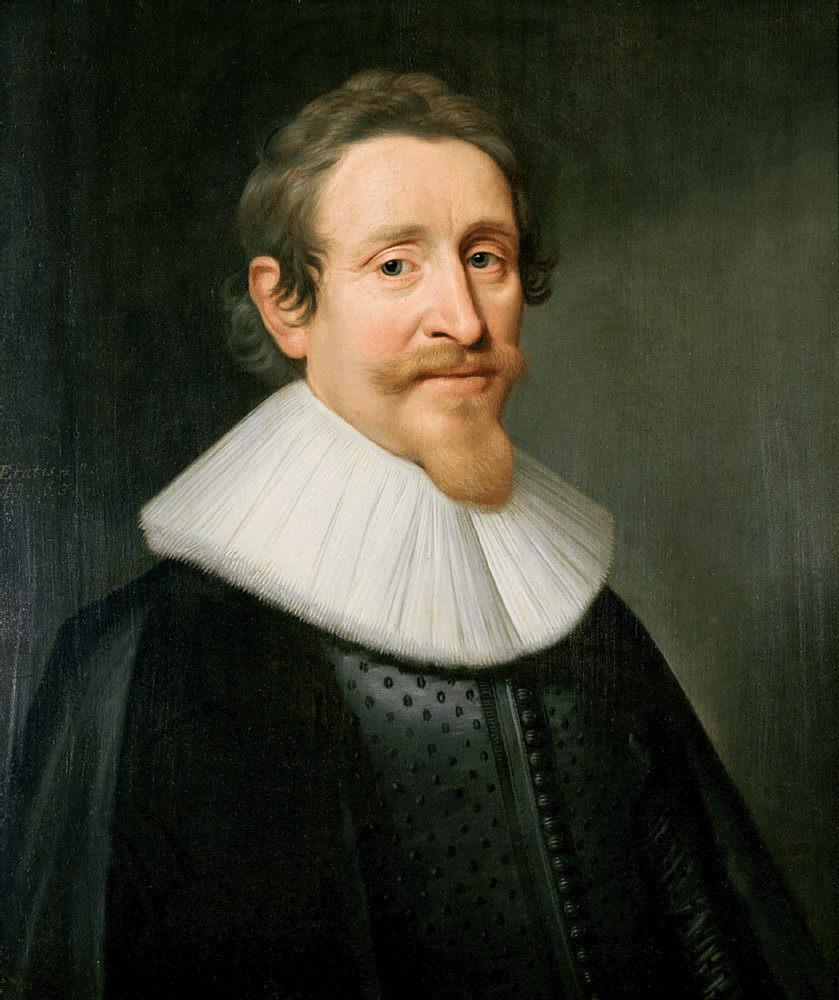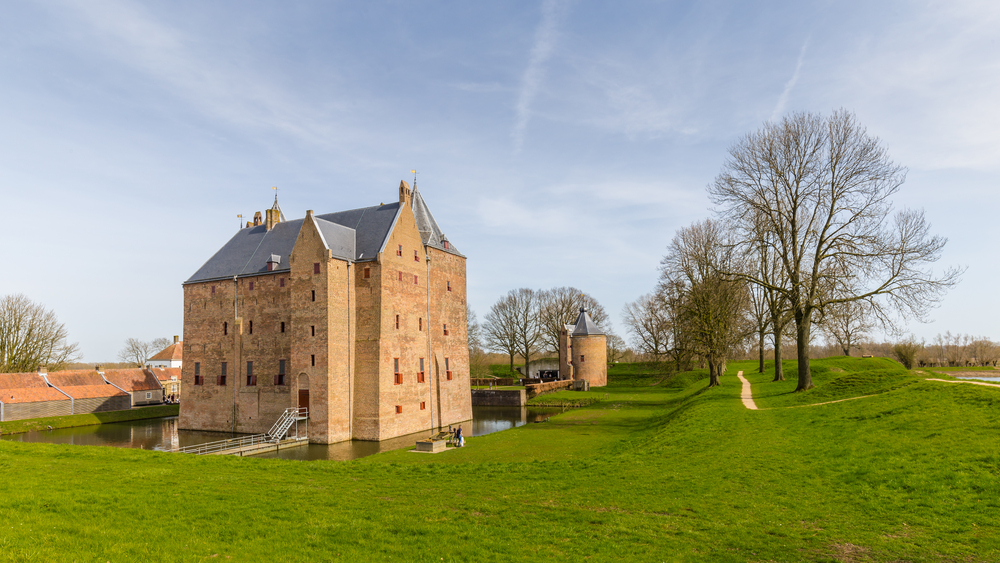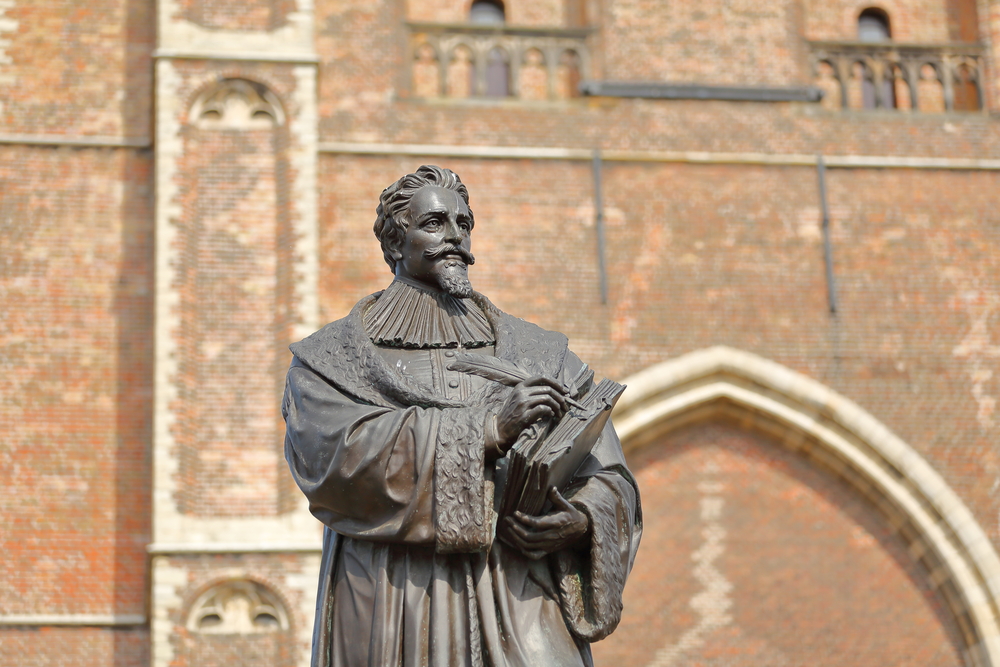Hugo de Groot, also known as Hugo Grotius, can easily be called one of the greatest scholars in Dutch history. A philosopher and a thinker, he laid the foundations for international law.
Yet despite his importance today, he was not quite appreciated in his own time and was even sentenced to life in prison. Who was he, and what was his ideology?
Who was Hugo de Groot?
Hugo de Groot (born Huigh de Groot) was born in 1583 in Delft. His father, Jan de Groot, was a well-known scholar, and it soon became clear that the junior De Groot was a very intelligent kid as well.
By the time he was eight years old, he was already able to understand Latin and Greek. At the age of 11, he started his studies at Leiden University. Within three years, he produced some of his first important work, and shortly after, he became the chief legal advisor of Johan van Oldenbarnevelt. Oldenbarnevelt was one of the key names of the early days of the Dutch Revolt.

Between the years 1599 and 1607, Hugo de Groot had his own workplace in The Hague, where he ran a law practice. In 1607, with the advice of Johan van Oldenbarnevelt, he started his duty as a tax lawyer at both the Court of Holland and the Supreme Court.
One of his most important works, Mare Liberum (meaning ‘The Free Sea’), was completed in 1609, laying the foundation for modern natural and international law. It was written to justify a hijacking done by the Dutch East India Company.
In Mare Liberum, he defended the principle that the sea is for everyone. Therefore, the incident which took place in the Indian waters was simply irrelevant.
READ MORE | What was the VOC? The Dutch East India Company explained
Risky? Very much so.
Hugo de Groot and Slot Loevestein
During his work for Johan van Oldenbarnevelt, Hugo de Groot also drafted the ideology of religious tolerance.
He had nothing to do with fanatical Calvinism and preferred a softer approach. According to him, in order to maintain civil order, it was only necessary to enforce basic ideas such as the existence of a God or Divine Providence. Everything else should be left to the individual’s private conscience. These claims caused some trouble and resulted in his arrest.
In 1619, De Groot was transferred to Slot Loevestein where he was to spend the rest of his life. Shortly after, his wife Maria van Reigersberch joined him voluntarily (now that’s devotion). During his time as a prisoner, De Groot was allowed to read and therefore continue to broaden his work.

He would often receive the books in big book chests, and even though these were inspected each time in the beginning, the controls loosened up as time passed. In 1621, with the help of his wife, Hugo de Groot managed to escape from Slot Loevestein in a book chest. After three years in captivity, he was free once again.
Today, you can see the famous chest in Museum Prinsenhof.
Father of Enlightenment
In Christianity, it was believed that humans were not capable of living together in peace and that only religious devotion could save the world from slipping into chaos.
The options were, therefore, clear: either live a life in despair, sin, and death or accept your immortal insignificance and find faith. De Groot started questioning this dogma, wondering whether a fully functioning society was possible without divine devotion and only based on one’s activities alone.
READ MORE | Religion in the Netherlands: a perspective on the different religions in the country

With new civilizations being discovered beyond the known continents, the lives of foreign nations — which were free from the dogmas of Christianity — began to spark the interest of 17th-century philosophers. In light of all of this, Hugo de Groot started exploring the idea of a world beyond religion.
How can humanity survive if God would abandon all? All these thoughts led him to an understanding of natural law and he soon become one of the fathers of the Enlightenment.
Hugo de Groot: final years
In the year 1631, after much travelling, Hugo de Groot returned to the Netherlands and opened his law practice in Amsterdam.
He was hoping to find a better climate in the country and leave his turbulent past behind him. Shortly after his return, he became part of a theological seminary in Amsterdam to teach alongside other important names such as Simon Episcopius and Philipp van Limborch.
In 1634, as a result of the Swedish King’s admiration, he became Sweden’s ambassador to Paris. On one of his returns from Sweden, his ship was shipwrecked while crossing the Baltic Sea. De Groot managed to reach the shore but died shortly after in Rostock, Germany, on August 28, 1645.
His remains were returned to Delft, where he is still buried in the Nieuwe Kerk.
Did you know about Hugo de Groot before? Tell us in the comments below!
Editor’s Note: This article was originally published in March 2018, and was fully updated in August 2022 for your reading pleasure.





Yes, I knew about Huig de Groot (although for ease of pronunciation I tend to call him Hugo Grotius). One of my law modules during my Erasmus year was about him, and the teacher was a Grotius expert. ?
Yes, I grew up with his name. My father told me about Hugo Grotius, as much as he new. Those years electronic media was non existent. Today it is so much easier and there is so much information available.
I am a direct descendant of Hugo de Groot, to the 15th generation. A cousin who is a pastor with a passion for genealogy traced our family history back to Hugo.
We traveled to the Netherlands in 2001 & toured the castle where Hugo was imprisoned. The funniest thing about that trip was a photograph that was taken of my sister & I with the picture of Hugo. If you put a beard on my sister she would look exactly like him! 😂
Reading about Dutch culture is always interesting, also the fact learning some new things you may have missed before…
I was born and raised in The Hague, from the 1940’s until 1960, after that emigrated to the USA…Love everything here just about, but still reading about Holland makes my heart sing!
Joke Snijtsheuvel-De Groot (No I am not tall…rats!) 5.5….
I grew up in Delft so yes I knew about Hugo. I walked past his statue on the square daily going to school. I don’t recall a lot of learning in school about him, for me most of n my interest in Hugo was learned after I left Delft in 1961.